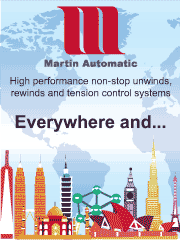New relationship challenges old ways
- Published: December 01, 1995, By Davis, Arthur G.
The year 2000 is just around the corner, and the transformation from a manufacturing to an information/service-based economy will continue to cause significant workforce issues.
The introduction of new work structures has raised the skill requirements of the workplace. Employees must have the skills and ability to handle more information and solve customer problems directly.
In addition, several demographic and economic changes are anticipated, including a decrease in workers under the age of 24; a bulge in the workforce at 25 to 54 years of age; increasing numbers of women in the workforce; the emergence of Hispanics as the largest minority within 20 years; and a shift in population and industry to the South and West.
These changes, combined with technological advances, global markets and fierce competition, have created new demands on employers and employees alike. One key workforce issue - the implied social contract between employer and employee - has changed dramatically, and a new employment relationship is emerging.
The new playing field features less stability and predictability, more change and uncertainty. It values performance and skills, not loyalty and tenure. Its "players" are self-sufficient rather than dependent, and its effective managers have become empowering, customer-focused leaders. Unless this new contract is made explicit, however, employers and employees will continue to operate under the old assumptions. Everyone needs to understand and acknowledge these changes so that a shared understanding exists.
Other signs of change include an increasing reliance on contingent or part-time workers and self-directed work teams. In many organizations, cross-functional teams focus on work that needs to be done, not on narrowly defined job descriptions.
How do organizations and their employees survive this new employment relationship? For many, the answer is creating a flatter, less hierarchical organization that supports characteristics of the new employment relationship: constant change, more challenging work, cross-functional work teams, self-sufficiency and diverse employee populations. For others, the solution includes new employee programs designed to rejuvenate stressed-out workers. And for some, it's leveraging new technology to manage necessary business functions.
Companies must manage both the systems and the human aspects of this changing employment relationship. This includes realizing the importance of performance and skills; commitment to the self and the team; multiple careers; continual development and retraining; self-sufficiency and empowerment; and customer focus. One of the keys to effectively managing today's employment relationship is shared objectives and ownership.
The optimum employment relationship is one in which employers and employees are aligned toward the same business objectives and reap the rewards of meeting them. Employees also must have the power to make decisions in matters for which they're responsible.
Strategies that business can employ to meet these challenges include:
* Expand your training/development budget. Historically, this has been one of the first items to be cut when times are tough. However, cutting in this area is suicide.
* Take a look at who you're hiring. It's critical to hire people who will thrive in this new environment of less stability and more uncertainty.
* Be aware that turnover is inevitable. Loyalty is on the down-swing. Employees are now loyal first to their individual careers, second to their peers and third to their company.
* Constantly review and modify performances and appraisal systems. The old appraisal and reward systems are no longer valid. Even within a single organization, successful compensation strategies will vary by job level, business unit, department and skill level.
By implementing strategies such as these, we are helping to create a workforce that is better equipped to deal with the workplace of tomorrow.
Arthur G. Davis is principal of A. G. Davis & Associates, a management consultancy in Chicago, IL, specializing in quality and productivity intervention.













